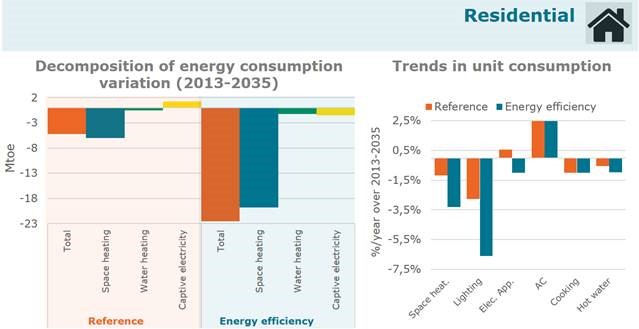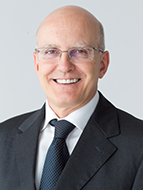7 November 2017
View Webinar Content
Presentation—Introduction to the webinar and panelists
Presentation—Manfred Hafner: Determining Future Energy Efficiency Potential across Sectors: A Case study for Germany
Transcript—Webinar audio transcript
The Clean Energy Solutions Center, in partnership with Enerdata, hosted this webinar on the main energy efficiency drivers at sectoral and end-use levels, and their impact on future energy consumption.
Energy demand is a growing concern as reserves are gradually depleting, emissions mitigation is getting more and more urgent, and there are still technological, business and political hurdles to a widespread development of renewable and clean energies globally. Robust forecasting plays a vital role in energy supply-demand management for both government bodies and private companies as national objectives set in energy plans are becoming more and more ambitious. For this reason, Enerdata has been developing over the last two decades the MedPro model, used by policymakers as well as business and strategic planners to forecast energy consumption at the country level and determine and rank the energy efficiency potential across sectors.
This webinar analyzed the overall energy demand pathways of different MedPro scenarios in the particular case of Germany. The analysis quantified the huge importance of the residential and transport sectors as primary energy efficiency pools. Eventually, a benchmark with France will be presented, in terms of effort and results to be achieved.
The presentations were followed by an interactive question-and-answer session with the audience.


Presenter
 Manfred Hafner, Partner and Vice-President Consulting, Enerdata
Manfred Hafner, Partner and Vice-President Consulting, Enerdata
Dr. Manfred Hafner is a recognized expert on energy scenario building, supply-demand assessment, energy policy analysis, market and strategy studies on all energy sources and with a special focus on gas and power markets. During his almost 30 years of working in the field of energy, in which he has consulted extensively for energy companies, governments and international organizations, he has gained considerable worldwide working experience and in particular on European, Middle Eastern, North African, Russian and CIS markets. He has coordinated several major interdisciplinary research projects for the European Commission. He is also a Professor of International Energy at Johns Hopkins University SAIS and Sciences Po Paris. He holds a PhD in Energy Studies from Mines-ParisTech (Ecole des Mines de Paris) and Master’s degrees in Energy Engineering, Economics and Policy from the Technische Universität München, the University of Pennsylvania and the Institut Français du Pétrole (IFP-School). Manfred speaks English, French, German, and Italian fluently and is fairly fluent in Spanish and Russian.
